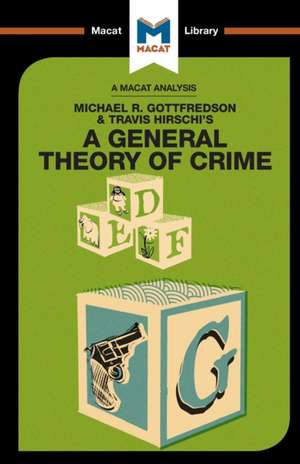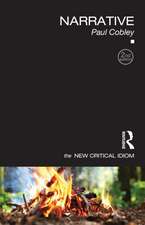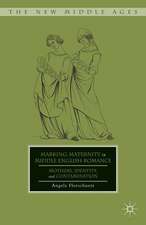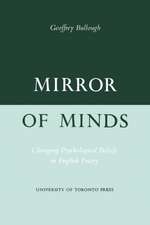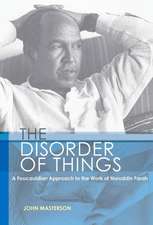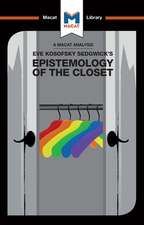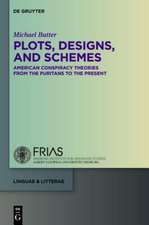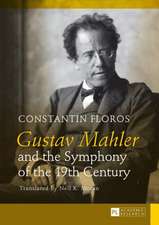An Analysis of Michael R. Gottfredson and Travish Hirschi's A General Theory of Crime: The Macat Library
Autor William Jenkinsen Limba Engleză Paperback – 4 iul 2017
In critical thinking terms, reasoning is all about presenting a solid and persuasive case – and as many people instinctively understand, the most persuasive reasoning is that which bases itself on a single, simple hook. In Gottfredson and Hirschi’s case, this hook was what has come to be known as the “self-control theory of crime” – the idea that the tendency to commit crime is directly related to an individual’s level of self-control.
While the dominant schools of thought of the time tended to focus on crime as the product of complex environmental factors, with little attempt to unify different theories, Gottfredson and Hirschi sought to interpret things so as to provide a single overarching concept that explained why crimes of all sorts were committed. Moreover, while other theories of crime concentrated on understanding and explaining specific types of law-breaking, the self-control model could, in Gottfredson and Hirschi’s view, be seen as the basis for understanding the root cause for all crime in all contexts. While such simplicity inevitably attracted as much criticism as agreement, subsequent studies have provided real-world corroboration for the General Theory’s persuasive reasoning.
| Toate formatele și edițiile | Preț | Express |
|---|---|---|
| Paperback (1) | 47.20 lei 3-5 săpt. | +4.53 lei 6-12 zile |
| Macat Library – 4 iul 2017 | 47.20 lei 3-5 săpt. | +4.53 lei 6-12 zile |
| Hardback (1) | 125.75 lei 6-8 săpt. | |
| Macat Library – 15 iul 2017 | 125.75 lei 6-8 săpt. |
Din seria The Macat Library
-
 Preț: 47.29 lei
Preț: 47.29 lei -
 Preț: 47.49 lei
Preț: 47.49 lei -
 Preț: 47.18 lei
Preț: 47.18 lei -
 Preț: 49.34 lei
Preț: 49.34 lei -
 Preț: 47.42 lei
Preț: 47.42 lei -
 Preț: 47.20 lei
Preț: 47.20 lei -
 Preț: 46.98 lei
Preț: 46.98 lei -
 Preț: 47.37 lei
Preț: 47.37 lei -
 Preț: 47.29 lei
Preț: 47.29 lei -
 Preț: 47.30 lei
Preț: 47.30 lei -
 Preț: 47.23 lei
Preț: 47.23 lei -
 Preț: 64.07 lei
Preț: 64.07 lei -
 Preț: 47.30 lei
Preț: 47.30 lei -
 Preț: 47.23 lei
Preț: 47.23 lei -
 Preț: 47.18 lei
Preț: 47.18 lei - 30%
 Preț: 32.99 lei
Preț: 32.99 lei -
 Preț: 47.13 lei
Preț: 47.13 lei -
 Preț: 47.23 lei
Preț: 47.23 lei -
 Preț: 47.26 lei
Preț: 47.26 lei -
 Preț: 47.65 lei
Preț: 47.65 lei -
 Preț: 47.37 lei
Preț: 47.37 lei -
 Preț: 47.08 lei
Preț: 47.08 lei -
 Preț: 47.18 lei
Preț: 47.18 lei -
 Preț: 47.18 lei
Preț: 47.18 lei -
 Preț: 47.27 lei
Preț: 47.27 lei -
 Preț: 47.99 lei
Preț: 47.99 lei -
 Preț: 47.23 lei
Preț: 47.23 lei -
 Preț: 47.02 lei
Preț: 47.02 lei -
 Preț: 47.23 lei
Preț: 47.23 lei -
 Preț: 47.42 lei
Preț: 47.42 lei -
 Preț: 47.30 lei
Preț: 47.30 lei -
 Preț: 47.13 lei
Preț: 47.13 lei -
 Preț: 47.10 lei
Preț: 47.10 lei -
 Preț: 47.20 lei
Preț: 47.20 lei -
 Preț: 46.98 lei
Preț: 46.98 lei -
 Preț: 47.08 lei
Preț: 47.08 lei -
 Preț: 47.29 lei
Preț: 47.29 lei -
 Preț: 47.15 lei
Preț: 47.15 lei -
 Preț: 47.29 lei
Preț: 47.29 lei -
 Preț: 64.24 lei
Preț: 64.24 lei -
 Preț: 46.98 lei
Preț: 46.98 lei -
 Preț: 47.40 lei
Preț: 47.40 lei -
 Preț: 47.87 lei
Preț: 47.87 lei -
 Preț: 47.42 lei
Preț: 47.42 lei -
 Preț: 47.18 lei
Preț: 47.18 lei -
 Preț: 47.40 lei
Preț: 47.40 lei -
 Preț: 47.40 lei
Preț: 47.40 lei -
 Preț: 46.98 lei
Preț: 46.98 lei -
 Preț: 47.20 lei
Preț: 47.20 lei -
 Preț: 47.21 lei
Preț: 47.21 lei
Preț: 47.20 lei
Nou
Puncte Express: 71
Preț estimativ în valută:
9.03€ • 9.66$ • 7.53£
9.03€ • 9.66$ • 7.53£
Carte disponibilă
Livrare economică 28 martie-11 aprilie
Livrare express 13-19 martie pentru 14.52 lei
Preluare comenzi: 021 569.72.76
Specificații
ISBN-13: 9781912128716
ISBN-10: 1912128713
Pagini: 96
Dimensiuni: 129 x 198 x 6 mm
Greutate: 0.11 kg
Ediția:1
Editura: Macat Library
Colecția Macat Library
Seria The Macat Library
ISBN-10: 1912128713
Pagini: 96
Dimensiuni: 129 x 198 x 6 mm
Greutate: 0.11 kg
Ediția:1
Editura: Macat Library
Colecția Macat Library
Seria The Macat Library
Cuprins
Ways In to the Text Who were Michael R. Gottfredson and Travish Hirschi? What does A General Theory of Crime Say? Why does A General Theory of Crime Matter? Section 1: Influences Module 1: The Author and the Historical Context Module 2: Academic Context Module 3: The Problem Module 4: The Author's Contribution Section 2: Ideas Module 5: Main Ideas Module 6: Secondary Ideas Module 7: Achievement Module 8: Place in the Author's Work Section 3: Impact Module 9: The First Responses Module 10: The Evolving Debate Module 11: Impact and Influence Today Module 12: Where Next? Glossary of Terms People Mentioned in the Text Works Cited
Notă biografică
Dr Bill Jenkins holds a PhD in Psychology from the University of Michigan. He is currently co-chair of the Department of Psychology at Mercer University.
Descriere
In their 1990 work, Gottfredson and Hirschi introduce a new and comprehensive theory of crime. At the time, crime researchers tended to focus on environmental factors that led to crime, not on the criminals themselves, and were inclined to think about crime only from their particular academic perspective. Ideas about what caused crime, and how to prevent it, were often in conflict.
